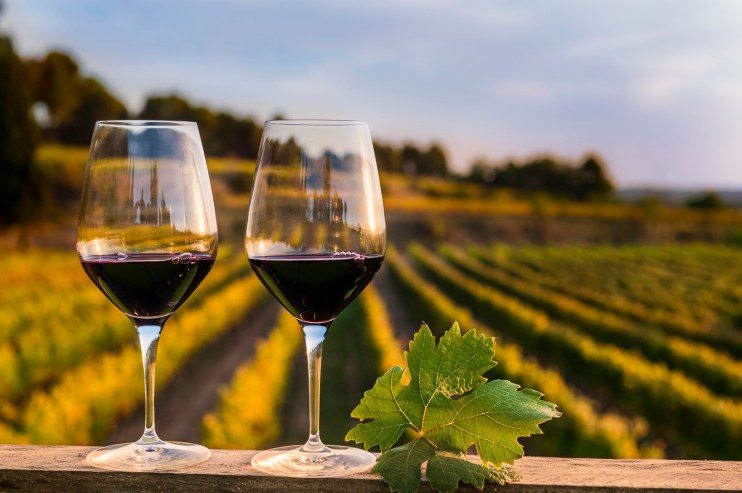What to drink this weekend: Something to try with the Six Nations

And so, after a hiatus that surely none of us expected, life would appear to be returning back towards normal, whatever that is.
The Editor asked me to write a piece to coincide with the Six Nations rugby tournament. My initial thought was to try and find a wine variety that is grown in all of the participating nations. though it did occur to me that this approach might face three significant challenges, namely Wales, Scotland, and especially Ireland. None of them renowned wine producing countries. Indeed, in the case of Ireland, I had no idea whether any wine is produced at all.
After intense study in the Bodleian library (as I like to call Wikipedia) it emerged that wine is indeed produced in Ireland. In the Middle Ages, Bede said that it was but Gerald of Wales said that it wasn’t. However it is clear that Ireland does now produces a specific type of wine named Lusca, and is fully acknowledged as a wine producing country by the European Commission, no less. I’ve never tried this wine, despite having spent quite a lot of time in Ireland over the years, and hope to give it a go one day.
I have known for many years that Scotland is a wine producing nation. I don’t even mean in the sense that Alistair Cooke used when he referred to whisky being ‘the wine of Scotland’. Many years ago I was offered Scottish white wine and again, extensive and detailed research has revealed that Scotland does indeed still produce wines though only non-grape varieties so far as I can tell.
Wales today boasts over 20 vineyards, and indeed, wines are grown throughout the principality. White wine dominates, but there are red wines also.
English wines are of course extremely well known these days and all of often very high quality. With global warming, several French wine producers, especially those making sparkling wines, are buying acreage in southern England.
Which brings us to France and Italy – both of course major wine producing nations.
So, given that there’s no one wine variety that’s grown across all the Six Nations, what are my suggestions for wine to accompany a rugby match? Well you don’t want to go mad and spend a fortune, but equally you want something that’s going to slip down well, probably without much in the way of food, except snacks.
I’ll leave the Irish, Scottish and Welsh wines for you to explore by yourselves.
When it comes to England I’m a big fan of their sparkling wines and especially Nyetimber. Whether your team wins or loses, their Classic Cuvee is superb – perfectly dry with a hint of fruit. You can get it for about £36 a bottle.
With France, the classic heart of their rugby-playing area is in the South, around such places as Toulouse, Agen and Narbonne. In my youth, as a student I found myself being duffed up by the likes of Daniel Dubroca, then Captain of France, when playing in the front row against Agen. We thought we were doing quite well in the first half but were very alarmed to see them bring on a new, and much larger front row for the second – and this was back in the days when substitutions weren’t even allowed in the UK!
To accompany a French rugby match I think we’re looking for a wine with flair, swagger, body depth – and that packs a punch! To that end I’d suggest Moulin de Duhart 2018. This Merlot/Cabernet Sauvignon blend is the second wine of Duhart Milon. It works well with food or just as is. It’ll set you back about £34.
Italian rugby is very much focused on the North of the country with their two professional teams, Benneton and Zebre, being located in Treviso and Parma respectively. The Italians have not had much fun in the Six Nations over recent years but I gather that their Under 20 side is very strong which bodes well for the future. Again, there are some terrific wines from these areas.
For a contrast to the French recommendation, I suggest a pinot Noir – Pinot Nero Riserva Mazon, Hofstatter 2018 from Trentino. This is a match for any Burgundy and costs about £30.
And a final thought, whatever wines you enjoy with your rugby, I hope that Wales win! Cymru am byth!
Steffan Williams is a founding partner at communications consultancy Williams Nicolson